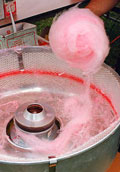
~ Reflection ~ by Deborah Beach Giordano
Where to Start
We began our discussion of prayer by emphasizing the need to be open and honest with God. Without question that is the most important and the most challenging aspect of prayer. The very first step is The Big One: that “leap of faith” that we can speak our truth to our Creator without fear.
 Of course it is possible to fib our way through our prayers. We can tell God that everything is fine; that we aren’t worried, or sad, or stressed, or angry; that we don’t covet our neighbor’s ox or ass or blue sports car; that we’re delighted with everything in the world as it is; that we have been charitable and loving in thought, word, and deed throughout every waking moment of every day...
Of course it is possible to fib our way through our prayers. We can tell God that everything is fine; that we aren’t worried, or sad, or stressed, or angry; that we don’t covet our neighbor’s ox or ass or blue sports car; that we’re delighted with everything in the world as it is; that we have been charitable and loving in thought, word, and deed throughout every waking moment of every day...
We can say anything. We can make up the biggest, most impressive lies imaginable.
But what purpose would that serve?
It’s not as if we can fool God into believing things that aren’t true. So who are we trying to kid?
The Obvious Answer
 The only one we can lead astray by sugar-coating our prayers is our self. And that can lead to a lot of trouble. It makes it possible to ignore the realities of what we have done and what we have left undone.
The only one we can lead astray by sugar-coating our prayers is our self. And that can lead to a lot of trouble. It makes it possible to ignore the realities of what we have done and what we have left undone.
Left to our own devices, we can develop rationales for our every deed, excuses for each unkind comment and uncharitable thought; we find ways to justify our desire for revenge, our fascination with violence, our petty-mindedness.... But when we bring these things to God, they are revealed for what they are: paltry, self-serving, and downright embarrassing.
Prayer brings clarity. But that’s just the beginning.
Put Away that Hair Shirt
 Equally dangerous is the temptation to turn prayer into a reiteration of every misstep, mistake, and misdeed of our lives; when we serve as our own hostile prosecutor, judge, and jury, assembling irrefutable evidence that we are the worst, most horrible sinner on the planet, devoid of any hope of redemption.
Equally dangerous is the temptation to turn prayer into a reiteration of every misstep, mistake, and misdeed of our lives; when we serve as our own hostile prosecutor, judge, and jury, assembling irrefutable evidence that we are the worst, most horrible sinner on the planet, devoid of any hope of redemption.
Such merciless self-reproach is not the purpose of prayer, nor does it serve to bring us closer to our God. Faith demands that we believe that nothing is beyond the Beloved’s power to forgive and to heal. Compassion insists that we be merciful to ourselves as well as to others.
When held up to the Light of Christ’s life, our own conduct is brought into sharp perspective: we realize that we are imperfect beings in every way. And that is OK. The precious Advocate understands that we are all Works in Progress, and seeks to guide us along the Way that Jesus taught.
Christ Lights the Way
Prayer changes things. It also — most importantly — changes us. But this transformation can only occur if we allow God’s grace into our lives; if, as this week’s psalm proclaims, we “rely on the Lord; and let his light shine upon us.”
 Unspoken guilt and the willful ignoring of faults, failings, and outright sinfulness eat away at our souls like termites in the floorboards. They will not go away on their own, but will spread further and further into our lives. We have all sinned and fallen short of the glory of God, we all stand in need of forgiveness, hope, and healing.
Unspoken guilt and the willful ignoring of faults, failings, and outright sinfulness eat away at our souls like termites in the floorboards. They will not go away on their own, but will spread further and further into our lives. We have all sinned and fallen short of the glory of God, we all stand in need of forgiveness, hope, and healing.
Jesus forgave, healed and blessed those who came to him. Not once did the Lord ever withhold his mercy or his compassionate love.
It is He whom we follow. It is He to whom we can dare to make our confession; confident of His mercy, trusting in His promise of forgiveness. It is He who stands beside us as we pray: our Teacher, Defender, and Friend.
Through Christ’s power we can admit all that we are, all that we desire, all that we have done; we can confess our imperfections, our shortcomings, our flaws and our failings. And through His grace we can be born again — into a new being: a free and joyful child of God.
A New Beginning

Confession is related to our baptism; repentance is a “washing away” of our sins, a cleansing of our souls. When we look at our lives clearly and honestly, we may be moved to tears — perhaps of regret or remorse, but most certainly of gratitude for God’s mercy and for the opportunity to make amends and to begin anew.
Genuine, truth-filled, Christ-empowered prayer can change the world — when what we ask for becomes what we do: forgiveness, charity, love, compassion, healing grace.... In time, and with God’s grace, the pray-er may become the prayer.
May it be so, with all of us!
Virtual hugs and real-time blessings,
Deborah +
A Spiritual Exercise
Offer this prayer once each day. Say the words slowly, opening your heart with honesty and consoling your spirit with Christ’s promise of mercy and new beginnings:
Most merciful God, I admit that I have sinned against You in thought, word, and deed; by what I have done, and by what I have failed to do. I have not loved You with my whole heart; I have not loved my neighbors as myself. I am truly sorry and I humbly repent. For the sake of Your Son Jesus Christ, have mercy on me and forgive me; that I may delight in Your will, and walk in Your ways, to the glory of Your Name. Amen.
Remember: we will never improve our lives if we keep our failings secret; we will never find forgiveness if we do not ask for it; we will never “grow in grace and truth” if we don’t keep following the Way that Jesus taught.